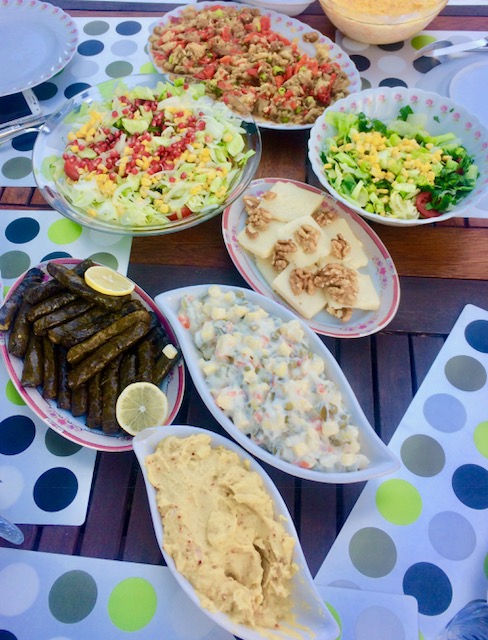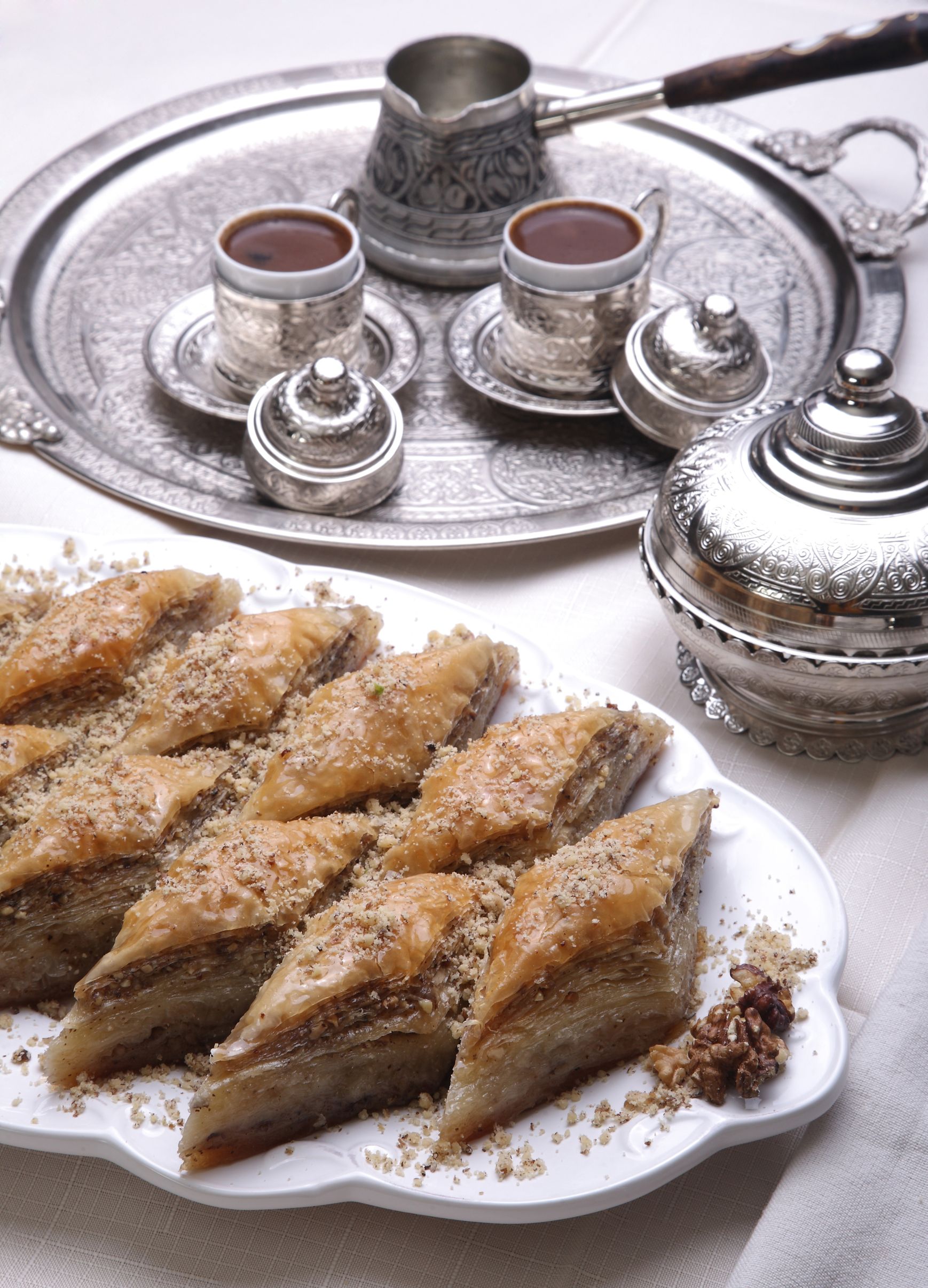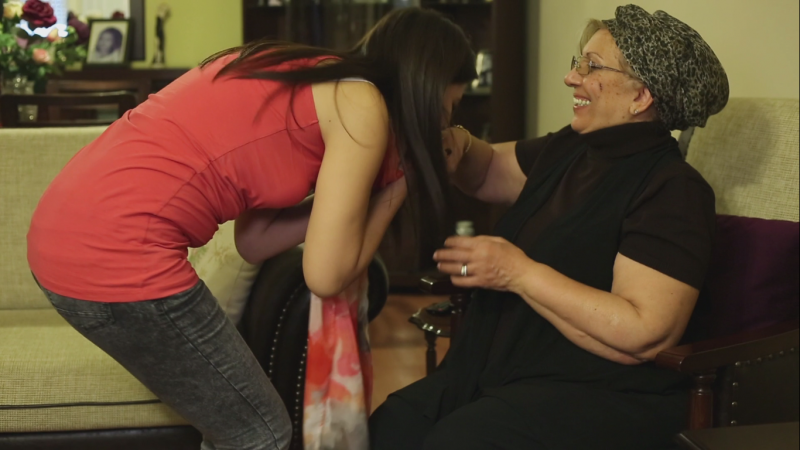In the video titled “Bayram Visits” in the first chapter of A2 book, we talked about the bayram traditions and hospitality of Turkish people. As for the grammatical angle, we emphasized the use of past continuous tense.
In order to understand the bayram traditions and the video content better, it’s best to first talk about hospitality of Turkish people.
Hospitable Turkish People
In Turkish culture, the importance given to the guests is very remarkable. Turkish people, known for their hospitality, try their best to make their guest comfortable and happy. And this is not specific to a special day, bayram or a celebration etc. It can be said that a guest visiting the home of a Turkish person is the most important person in that house. In fact, Turkish homes used to have “guest rooms” that were not frequently used by the family members, decorated more carefully and where the guests were entertained. This custom that lasted many years has been abandoned in recent years, but still can be seen in some homes.
Since Turkish people value their guests, they also pay special attention to the items used by the guests. These household items (dinner sets, cutlery, towels, etc.) that are not used daily are usually kept in a separate place and only used when there are guests in the house. This is why you might feel very special if you are a guest in a Turkish home.
Shoes and slippers

Turkish people don‘t enter their house with shoes on. They also expect their guests to take their shoes off when entering the home. They’re very conservative in this regard. When they take off their shoes, they put on house slippers. This is a custom. Turkish people also offer slippers to their guests. This is why Turkish homes have quite a few pairs of slippers.
What can I offer you?

“İkram” (treat) is the general name of everything offered when entertaining guests.
Turkish people want to make their guests happy by constantly offering them something. Even if it’s not a dinner party, it’s almost impossible to sit in a Turkish home without eating and drinking. In traditional Turkish homes, guests are first offered cologne followed by candies or chocolates. İkram continues with other food and beverages. Tea (çay) is an absolute must in ikram. Since Turkish people love drinking tea, they also offer it to their guests (sometimes without even asking), but tea is almost always offered with pastries like pies, cakes or cookies. İkram continues as long as the guest’s stay. For instance, after tea service, fruit or assorted nuts may follow. If the guest refuses to eat or just eat a little, they keep insisting or offer an alternative thinking that their ikram is not liked. In short, not eating or drinking in a Turkish home makes the host unhappy. Because of this, it’s more appropriate to visit a Turkish home hungry.
Bayram and Bayram Rituals
As in many other Islamic countries, Turkey also celebrates two religious holidays as “Eid Al-Fitr” and “Eid Al-Adha” According to the Islamic calendar, the dates of these two bayrams change around ten days each year. In other words, the dates of these bayrams are different every year.
For those who celebrate the bayrams traditionally, the preparations begin early. During this period meals are cooked, homes are cleaned, bayram desserts are made and bayram shopping is done. In previous years, it was a tradition to buy new clothes especially for the kids before bayrams. Today, even though most people doesn’t follow this tradition, dressing up is still an important concept.
In bayrams, younger relatives are expected to visit family elders. Family members living in the same city usually gather at the eldest relatives’ house. And those who cannot visit their families call their elder relatives to exchange bayram greetings.
People get up early on bayram mornings. Men who want to pray first go to a mosque, afterwards family members gather together to exchange bayram greetings. Younger family members kiss the hands of their elders. As mentioned in previous articles, “respect for the elderly” is a very important value in Turkish social life; kissing someone’s hand is a sign of respect and in family gatherings, grandparents’ hands are kissed first. This tradition is respected not only at bayrams but also in all usual visits.
Bayram Visits:

Bayram visits are maybe the most important ritual of the bayrams. Preparations during bayrams are usually done for the guests. Bayram visits are made not only with family members; neighbors, friends, acquaintances all visit each other and exchange greetings.
A unique feature of these visits is their short duration. This is because people want to visit as many people as possible during bayrams. These visits start during morning hours and continue until evening. In these visits, younger people are expected to visit family elders first. During these visits, first bayram greetings are exchanged and then bayram ikram is offered. İkram starts with cologne, and candies or chocolates, followed by Turkish coffee and bayram desserts. Apart from these, it’s possible to see other food served such as pastries, wrapped vine leaves or stuffed peppers etc.
Bayrams for children

Traditionally celebrated bayrams mean something different for the kids. Especially in previous years, it was a tradition to buy new clothes and gifts for children. In bayram mornings, children put on their new clothes and exchange bayram greetings with family elders by kissing their hands. After this ceremony, children are given pocket money. Later they leave the house to visit door-to-door to celebrate everybody’s bayrams. And people give out candies, chocolates and sometimes pocket money to the kids. Children eat all the candy they collected throughout the day, save or spend the money they collected.
Today’s Bayrams
In old times, almost everybody in Turkey celebrated bayrams in this traditional way described above. However, with the transformation of the family and social structure, today some of these traditions have been abandoned. Since bayrams are official holidays, some people have started to spend this time vacationing instead of visiting families. Living in apartments, Turkish people stopped sending their children to collect candies, but they still give them pocket money, gifts or candies.
Even though bayrams are not what they used to be, these days are still special for Turkish people. They still try to visit their families as much as they can, exchange bayram greetings with their relatives and friends, entertain their guests and try to make their children happy.
Ayşin Önder
All rights reserved.
This text or any portion thereof may not be copied without prior written consent.



Leave A Comment